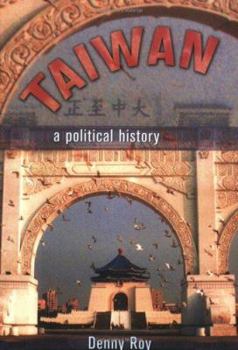Taiwan: A Political History
Select Format
Select Condition 
Book Overview
For centuries, various great powers have both exploited and benefited Taiwan, their designs for this island frequently clashing with the desire of local inhabitants to control their own destiny. Such conflicts have shaped Taiwan's multiple, and frequently contradictory, identities. Denny Roy contends that Taiwan's political history is best understood as a continuous struggle for security. Eschewing the usual emphasis on the high politics of the recent era, he offers a comprehensive narrative of the island's political history from the first Chinese settlements to the Chen Shui-bian presidency. Roy covers the political system constructed by the KMT during the Cold War, the opposition breakthrough, the presidency of Lee Teng-hui, and the DPP presidential victory in March 2000. Roy's approach allows him to integrate his understanding of Taiwan's domestic politics with its foreign affairs--particularly the relations with mainland China. He reveals how the interplay between political forces within and the influence of foreign countries from without has shaped Taiwan. His is a balanced account, incorporating up-to-date coverage and presenting many indigenous voices. Taiwan: A Political History illuminates the origins of the island's often-troubled domestic and international political situation.





